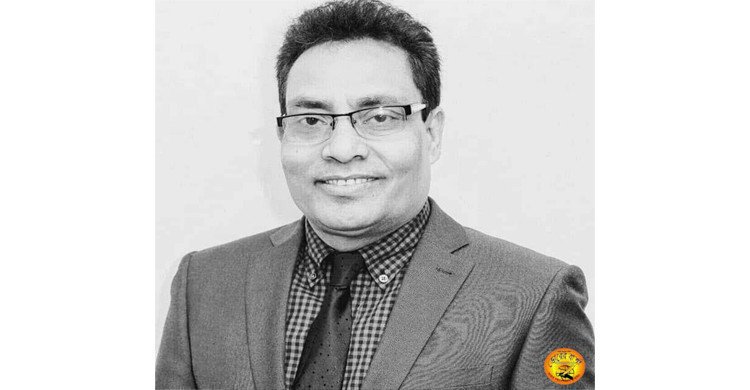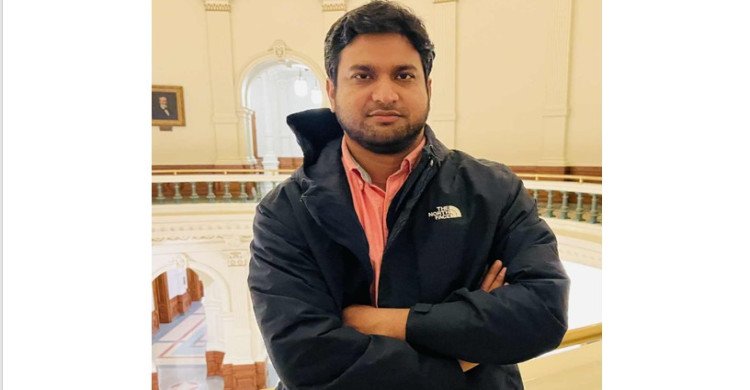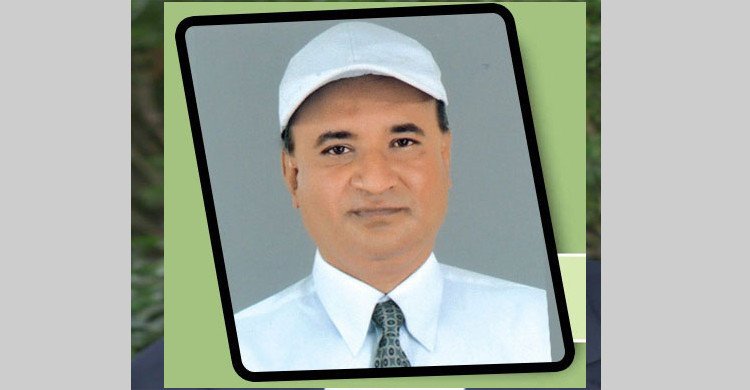United Nations General Assembly and Globalization Reality

Raihan Ahmed Tapadar
৭-১০-২০২৪ দুপুর ১:২০

United Nations General Assembly and Globalization Reality
The General Assembly of the United Nations is called the Legislative Council of the World. Almost all global issues are decided here with the participation of the representatives of all the countries of the world. The General Session of the National Assembly took place at a critical moment such as global political unrest, financial recession and war. World leaders have gathered at the United Nations headquarters amid more than two years of Russia-Ukraine war, Israeli aggression in Palestine, and the threat of a new major war in the Middle East. The United Nations was formed in 1945 in the context of World War II to protect future generations from the horrors of war. This council is the main policy-making body of the United Nations. Every year in September at the UN headquarters in New York, the leaders of all the member countries of the UN meet and discuss various global issues. Voting is also held among the 193 member countries of the United Nations on various important topics. For example, Palestine has added a new dimension to this session. Despite not being a full member of the United Nations, the Palestinian Mission participated in the session this time. In May this year, 143 countries voted in favor of making Palestine a full member in the General Assembly. This session also voted on ending Israel's war and occupation of Palestine. Out of 193 countries, 124 countries voted in favor, 14 against, and 43 countries abstained from voting. This majority vote passed the resolution to end Israel's illegal occupation of Palestine within the next one year.
This year's session is expected to discuss various future-focused issues, including conflict resolution, achieving the Sustainable Development Goals and helping developing countries. The United Nations General Assembly is the only branch of the organization where all 193 member states have the opportunity to be represented and speak at meetings. Informal meetings between leaders outside of meetings are usually more important. When the United Nations was founded in 1945, it was hoped that the world organization would prevent war, underdevelopment and human rights violations from the world. The countries that defeated Germany and its allies in World War II were the real driving force behind the organization. That is the real reason for hope and enthusiasm about the United Nations. But it didn't take long for the countries' friendship to crack. The cold war between East and West began. Those who promised to prevent war turned out to be the most engaged in preventing war. Their real goal is to divide the world instead of uniting it. 78 years have passed since then. The situation has not changed, but has worsened manifold. UN Secretary-General Antonio Guterres is hard to find when international cooperation is most useful. This year, world leaders gathered in New York for the UN Future Conference, as announced by member states for the 75th anniversary of the United Nations in 2020. The conference agenda is as ambitious as its title. Because, here it is said to build consensus on peace, security, development, new technologies and protection of future generations.
The member states of the United Nations have agreed on one thing. That is to update the multilateral system established in 1945 to deal with today's global crisis. Through this, the multilateral system should be modernized. to end wars in Sudan, Central Africa, Gaza, Ukraine and dozens of other conflict zones; On the other hand, member states are well aware of the inability of the United Nations to stop these wars. After witnessing the devastation of Corona, they admit that the world has failed to prepare for the next pandemic. They all recognized the need for swift and effective action to deal with the debt crisis, the intensifying climate crisis and the rise of new technologies such as artificial intelligence and gene-editing. But the thing is, while they agree on the need to fix the world order, they do not agree on how to do it. The countries have been negotiating a future deal for more than a year. But at the conference, Russia objected to the passage of the final document. However, the country's objection was ultimately rejected. That same day, Argentina denounced the agreement as a totalitarian agenda. But the reality is that the document contains the previously agreed points; Only linguistic changes have been made. But even in such a long talk, there is an attempt to give a new pattern to global politics, which is able to face the current and future challenges. But the reality is that this kind of global governance is not suitable for today's world at all.
Especially not for the four billion youth and young adults under the age of thirty. New arrangements should be made for them. Many continents are now in conflict. Yet war is no longer the only global agenda. Pandemics, climate change, poverty, mass migration and technological disruption all require effective and inclusive international action. The rise of China now attracts the most attention. But it is not the only country shaping the global agenda. The Barbados situation has pushed for reform of the international financial system. The UAE has attempted to realign regional relations. Incredibly the future agreement recognized the growing multipolarity of the world. Gradual progress is being made in solving the most pressing issues, such as Security Council reform. Member States have agreed in principle to include developing countries and small and medium-sized states in the General Assembly. This agreement proposes that Member States negotiate on limiting the scope and use of the veto power exercised by the five permanent members of the Security Council. Future agreements commit to strengthening partnerships across society, including local and regional governments, the private sector, the academic and scientific community, religious groups and indigenous peoples. After all, the conference is about building a long-term global system. Dr. on behalf of Bangladesh. Muhammad Yunus is attending this session of the United Nations at a time when only a month and a half ago there have been major changes in Bangladesh. As a result, this session has been in a different situation for Bangladesh.
Secretary-General Antonio Guterres himself has admitted that the United Nations is becoming increasingly irrelevant. Beyond peacekeeping, the main challenge facing the United Nations at the moment is dealing with the climate crisis. And if it is not possible to reduce the warming of the earth's surface in just 10 years, then the world will be thrown into an inevitable terrible disaster. This requires on the one hand to eliminate the use of fossil fuels and increase the use of renewable fuels, such as the sun or wind. But those who control the heart of this world, they are the most gas and oil traders. Another thing that is equally important is providing financial and technical assistance to poor countries to deal with the climate crisis. In this regard, rich countries have fulfilled their responsibilities by talking at length, doing very little meaningfully. In a speech at the 77th session of the United Nations General Assembly, Guterres said, 'Instead of uniting, we are dividing the world. Instead of achieving goals, we have become involved in competition with each other in such a way that the organization is losing its momentum. The world is growing divided, inequality is increasing, and achieving goals is becoming difficult. No doubt, the cause of this danger is created by the world's major powers themselves. For example, one of the architects of the United Nations, Russia the former Soviet Union showed itself the thumb of the organization by invading neighboring Ukraine in 2022. A key commitment of the UN Charter is that no country, large or small, shall under any circumstances violate the sovereignty of another country. Russia has done just that.
Not only Russia, most of the big countries in the United Nations are finding their own way to deal with most bilateral or multilateral problems without going to the United Nations. The fact that the United Nations is now just a pet cat without claws is one of the main reasons why countries around the world have avoided this organization and formed small alliances. But most painfully, the world needs an effective United Nations now more than ever. If we fail to deal with challenges like the climate crisis, we will all be doomed. Same with epidemics like covid. A greater epidemic awaits us. As many as two dozen countries have been wracked by civil war or cross-border military conflict. Half of the world's people are drowning in poverty and underdevelopment. It was said that the United Nations will take the lead in solving these problems. But in reality, the people of the world can see the difference. In other words, the world has changed in the last seven decades, but the world organization has not. Everyone agrees that the United Nations must be reformed.
Writer: Researcher and columnist
Raihan Ahmed Tapadar
৭-১০-২০২৪ দুপুর ১:২০

The General Assembly of the United Nations is called the Legislative Council of the World. Almost all global issues are decided here with the participation of the representatives of all the countries of the world. The General Session of the National Assembly took place at a critical moment such as global political unrest, financial recession and war. World leaders have gathered at the United Nations headquarters amid more than two years of Russia-Ukraine war, Israeli aggression in Palestine, and the threat of a new major war in the Middle East. The United Nations was formed in 1945 in the context of World War II to protect future generations from the horrors of war. This council is the main policy-making body of the United Nations. Every year in September at the UN headquarters in New York, the leaders of all the member countries of the UN meet and discuss various global issues. Voting is also held among the 193 member countries of the United Nations on various important topics. For example, Palestine has added a new dimension to this session. Despite not being a full member of the United Nations, the Palestinian Mission participated in the session this time. In May this year, 143 countries voted in favor of making Palestine a full member in the General Assembly. This session also voted on ending Israel's war and occupation of Palestine. Out of 193 countries, 124 countries voted in favor, 14 against, and 43 countries abstained from voting. This majority vote passed the resolution to end Israel's illegal occupation of Palestine within the next one year.
This year's session is expected to discuss various future-focused issues, including conflict resolution, achieving the Sustainable Development Goals and helping developing countries. The United Nations General Assembly is the only branch of the organization where all 193 member states have the opportunity to be represented and speak at meetings. Informal meetings between leaders outside of meetings are usually more important. When the United Nations was founded in 1945, it was hoped that the world organization would prevent war, underdevelopment and human rights violations from the world. The countries that defeated Germany and its allies in World War II were the real driving force behind the organization. That is the real reason for hope and enthusiasm about the United Nations. But it didn't take long for the countries' friendship to crack. The cold war between East and West began. Those who promised to prevent war turned out to be the most engaged in preventing war. Their real goal is to divide the world instead of uniting it. 78 years have passed since then. The situation has not changed, but has worsened manifold. UN Secretary-General Antonio Guterres is hard to find when international cooperation is most useful. This year, world leaders gathered in New York for the UN Future Conference, as announced by member states for the 75th anniversary of the United Nations in 2020. The conference agenda is as ambitious as its title. Because, here it is said to build consensus on peace, security, development, new technologies and protection of future generations.
The member states of the United Nations have agreed on one thing. That is to update the multilateral system established in 1945 to deal with today's global crisis. Through this, the multilateral system should be modernized. to end wars in Sudan, Central Africa, Gaza, Ukraine and dozens of other conflict zones; On the other hand, member states are well aware of the inability of the United Nations to stop these wars. After witnessing the devastation of Corona, they admit that the world has failed to prepare for the next pandemic. They all recognized the need for swift and effective action to deal with the debt crisis, the intensifying climate crisis and the rise of new technologies such as artificial intelligence and gene-editing. But the thing is, while they agree on the need to fix the world order, they do not agree on how to do it. The countries have been negotiating a future deal for more than a year. But at the conference, Russia objected to the passage of the final document. However, the country's objection was ultimately rejected. That same day, Argentina denounced the agreement as a totalitarian agenda. But the reality is that the document contains the previously agreed points; Only linguistic changes have been made. But even in such a long talk, there is an attempt to give a new pattern to global politics, which is able to face the current and future challenges. But the reality is that this kind of global governance is not suitable for today's world at all.
Especially not for the four billion youth and young adults under the age of thirty. New arrangements should be made for them. Many continents are now in conflict. Yet war is no longer the only global agenda. Pandemics, climate change, poverty, mass migration and technological disruption all require effective and inclusive international action. The rise of China now attracts the most attention. But it is not the only country shaping the global agenda. The Barbados situation has pushed for reform of the international financial system. The UAE has attempted to realign regional relations. Incredibly the future agreement recognized the growing multipolarity of the world. Gradual progress is being made in solving the most pressing issues, such as Security Council reform. Member States have agreed in principle to include developing countries and small and medium-sized states in the General Assembly. This agreement proposes that Member States negotiate on limiting the scope and use of the veto power exercised by the five permanent members of the Security Council. Future agreements commit to strengthening partnerships across society, including local and regional governments, the private sector, the academic and scientific community, religious groups and indigenous peoples. After all, the conference is about building a long-term global system. Dr. on behalf of Bangladesh. Muhammad Yunus is attending this session of the United Nations at a time when only a month and a half ago there have been major changes in Bangladesh. As a result, this session has been in a different situation for Bangladesh.
Secretary-General Antonio Guterres himself has admitted that the United Nations is becoming increasingly irrelevant. Beyond peacekeeping, the main challenge facing the United Nations at the moment is dealing with the climate crisis. And if it is not possible to reduce the warming of the earth's surface in just 10 years, then the world will be thrown into an inevitable terrible disaster. This requires on the one hand to eliminate the use of fossil fuels and increase the use of renewable fuels, such as the sun or wind. But those who control the heart of this world, they are the most gas and oil traders. Another thing that is equally important is providing financial and technical assistance to poor countries to deal with the climate crisis. In this regard, rich countries have fulfilled their responsibilities by talking at length, doing very little meaningfully. In a speech at the 77th session of the United Nations General Assembly, Guterres said, 'Instead of uniting, we are dividing the world. Instead of achieving goals, we have become involved in competition with each other in such a way that the organization is losing its momentum. The world is growing divided, inequality is increasing, and achieving goals is becoming difficult. No doubt, the cause of this danger is created by the world's major powers themselves. For example, one of the architects of the United Nations, Russia the former Soviet Union showed itself the thumb of the organization by invading neighboring Ukraine in 2022. A key commitment of the UN Charter is that no country, large or small, shall under any circumstances violate the sovereignty of another country. Russia has done just that.
Not only Russia, most of the big countries in the United Nations are finding their own way to deal with most bilateral or multilateral problems without going to the United Nations. The fact that the United Nations is now just a pet cat without claws is one of the main reasons why countries around the world have avoided this organization and formed small alliances. But most painfully, the world needs an effective United Nations now more than ever. If we fail to deal with challenges like the climate crisis, we will all be doomed. Same with epidemics like covid. A greater epidemic awaits us. As many as two dozen countries have been wracked by civil war or cross-border military conflict. Half of the world's people are drowning in poverty and underdevelopment. It was said that the United Nations will take the lead in solving these problems. But in reality, the people of the world can see the difference. In other words, the world has changed in the last seven decades, but the world organization has not. Everyone agrees that the United Nations must be reformed.
Writer: Researcher and columnist





